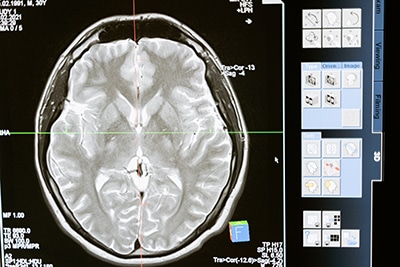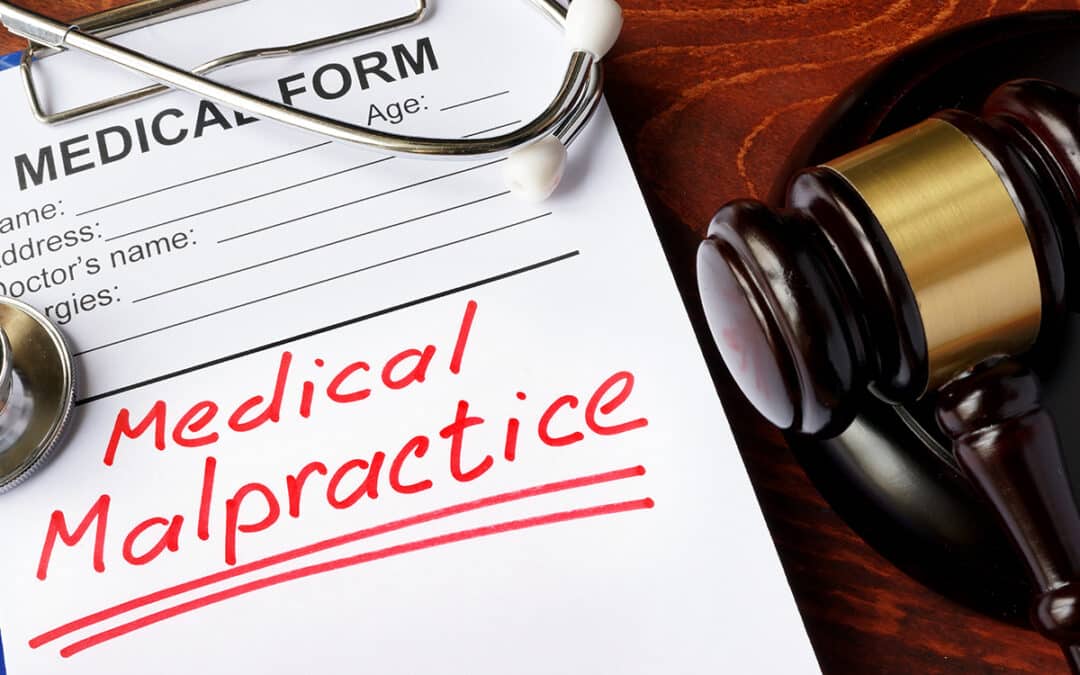Medical malpractice, a term that often evokes a sense of fear and uncertainty, is a critical aspect of the healthcare and legal landscapes that impacts thousands of individuals each year. At the intersection of medicine and law, medical malpractice cases arise when healthcare professionals deviate from the standards of their profession, leading to patient harm. This complex subject encompasses not only the failures and oversights in the medical field but also highlights the pursuit of justice and reparation for those affected. Delving into the intricacies of medical malpractice will not only enlighten us about its definition and examples but also guide those seeking legal representation through the labyrinth of the legal process.
What is Medical Malpractice?

Medical malpractice occurs when a healthcare provider, such as a physician, acts negligently, resulting in harm to a patient. This negligence can manifest in various forms, including misdiagnosis, incorrect treatment, surgical errors, or failure to inform the patient of the risks of treatment. For an act to be considered malpractice, it must be proven that the physician’s care deviated from the accepted standard of practice in the medical community and directly caused injury or harm to the patient.
Medical malpractice is fundamentally characterized by a breach of duty on the part of a health care professional towards their patient. For an incident to be considered medical malpractice, three core criteria must be met. Firstly, it must be established that the health care professional owed a standard of care to the patient. Secondly, this standard of care was violated due to some form of negligence or omission. Lastly, this breach of duty must have directly resulted in harm or injury to the patient. Only when these conditions are satisfied can an affected patient proceed to file a medical malpractice lawsuit. This legal action seeks to hold the health care provider accountable for their actions and to compensate the patient for the injuries suffered as a result of substandard care.
Examples of Medical Malpractice
Surgical Errors
Surgical errors are a significant aspect of medical errors that can lead to medical malpractice claims. These errors can occur during the operation itself, from the initial incision to the closing stitches. Common examples include performing surgery on the wrong patient or body part, leaving surgical instruments inside the patient’s body, or causing avoidable nerve damage during the procedure.
Additionally, surgical errors may extend to post-operative care, where improper monitoring can lead to infections or complications. Another poignant example is birth injuries, which can occur due to medical errors during delivery. These may involve incorrect use of delivery tools or failing to monitor the baby’s vital signs adequately, leading to long-term health issues. Each of these instances demonstrates how deviations from standard medical procedures and care can have devastating and lasting effects on patients, potentially qualifying as medical malpractice.
Misdiagnosis
Misdiagnosis is another prevalent issue that can lead to claims of medical malpractice. When a healthcare provider incorrectly diagnoses a patient, the implications can be severe, leading to unnecessary or harmful medical treatments. For instance, diagnosing a benign tumor as malignant can result in a patient undergoing aggressive treatments like chemotherapy or radiation, which are not only physically and emotionally draining but also unnecessary.
Conversely, failing to diagnose a serious condition such as cancer in a timely manner can deny a patient the critical treatments needed to manage the disease effectively. In either scenario, the misdiagnosis can significantly alter the course of a patient’s life, underscoring the gravity of ensuring accurate and timely diagnoses in the medical profession.
Medication Mistakes
Medication mistakes represent a critical aspect of medical malpractice, where the role of a health care professional is paramount. Such errors can occur in various forms, including prescribing or administering the wrong medication to a patient. This type of mistake can have detrimental effects, ranging from adverse drug reactions to prolonged illness or even death.
For instance, a health care professional might prescribe a medication that a patient is allergic to due to a failure in reviewing the patient’s medical history or might administer a drug intended for another patient, causing harm. Each of these situations highlights the severe consequences of medication errors and underscores the importance of meticulous attention to detail in the prescribing and administering of medicines.
Impact on Patients

The impact of medical malpractice on patients extends far beyond the immediate aftermath of the erroneous treatment. Physical Harm is often the most visible consequence when a doctor fails in their duty of care. Such negligence can lead to serious injuries, permanent disability, and, in the most grievous cases, wrongful death, when a patient died due to avoidable medical errors. Beyond the physical toll, the Emotional Distress experienced by patients and their family members cannot be overstated. The trauma of medical malpractice can lead to long-term psychological conditions such as anxiety, depression, and loss of trust in medical institutions.
Financial Implications are another critical aspect, as victims of medical malpractice frequently incur significant medical expenses for additional treatments, corrective surgeries, and long-term care. These financial burdens are compounded by the potential loss of income if the physical harm or emotional distress prevents them from working. The cumulative effect of these factors underscores the profound impact that medical malpractice can have on the lives of patients and their families, emphasizing the importance of accountability and high standards in healthcare.
How to Protect Yourself
Seeking a second opinion from another health care professional is a crucial step in safeguarding one’s health and well-being, especially when faced with significant medical procedures or diagnoses. This practice allows patients to verify the accuracy of their initial diagnosis and to explore alternative treatment options that might be available. Consulting with another expert can provide a fresh perspective, often bringing to light different interpretations of medical tests or suggesting new approaches to treatment. In the context of medical malpractice, obtaining a second opinion can be particularly valuable as it helps to ensure that the proposed medical care aligns with standard practices within the medical community. Ultimately, engaging with another health care professional for a second opinion empowers patients to make more informed decisions regarding their health care, potentially averting adverse outcomes.

Understanding informed consent is a pivotal aspect of the medical and legal process that should not be overlooked. It serves as a fundamental patient right, ensuring individuals are fully aware of the potential risks and benefits associated with medical procedures or treatments before they proceed. This legal process requires clear communication between healthcare providers and patients, allowing for informed, voluntary decisions about one’s health care. Acknowledging the importance of informed consent underscores the commitment to patient autonomy and protection, while also safeguarding medical professionals from potential legal repercussions associated with medical malpractice claims.
Knowing your rights in medical malpractice cases is paramount for several reasons. It not only empowers you to take appropriate action if you believe you have been a victim of medical negligence but also informs you about the potential pathways for seeking justice and compensation. Consulting with a qualified medical malpractice attorney is a critical step in this process. An attorney can provide expert advice on the strengths of your case, guide you through the complexities of legal proceedings, and help in negotiating settlements. Understanding the possible legal fees involved is also essential, as it prepares you for the financial aspects of pursuing litigation. Being informed about your rights and the legal landscape of medical malpractice ensures that you can make decisions that are in your best interest, both health-wise and financially.
Do I Have a Valid Medical Malpractice Claim?
Determining whether you have a valid medical malpractice claim can be a nuanced process, requiring expertise in both medical and legal fields. Typically, the first step involves consulting with medical malpractice attorneys, who specialize in assessing the merits of such cases. These legal professionals can help ascertain if the healthcare provider’s actions—or lack thereof—constitute negligence under the law. Medical malpractice insurance records and claims histories can also provide insight into any previous similar incidents or patterns of negligence by the healthcare provider.
Filing a medical malpractice suit is a complex undertaking that involves not only proving negligence but also demonstrating how this negligence resulted in harm. To seek compensation, victims must clearly link their injuries or worsening health conditions directly to the medical professional’s actions. This often requires detailed medical records, expert testimony, and a deep understanding of both healthcare practices and legal standards surrounding medical malpractice. With the guidance of experienced attorneys, victims can navigate the intricacies of the legal process and fight for the justice and compensation they deserve.
Filing Medical Malpractice Claims

Filing a medical malpractice claim is a meticulous process that begins with the gathering of all evidence that can prove medical negligence was at play. Most medical malpractice claims require the patient or their representatives to demonstrate that the healthcare provider failed to meet the standard of care expected, leading to harm or injury. This often involves compiling medical records, expert testimonies, and any other documentation that supports the claim of negligence.
Upon gathering sufficient evidence, the next critical step involves consulting with a medical malpractice attorney. These legal professionals specialize in navigating the complex landscape of medical malpractice law. They play a pivotal role in evaluating the strength of the case, advising on the best course of action, and representing the claimant throughout the legal process.
The attorney will then file a lawsuit on behalf of the patient, initiating formal legal proceedings. This process includes notifying the healthcare provider(s) involved about the claim, outlining the nature of the alleged negligence, and detailing the impact it had on the patient’s health and wellbeing. From there, the case may proceed through various stages, including discovery, negotiations, and possibly a trial, depending on the specifics of the case and the willingness of both parties to reach a settlement. Through each step, the goal remains to hold the healthcare provider accountable for their actions and secure fair compensation for the harm caused by their negligence.
Who Will Handle Your Medical Malpractice Case?
Finding a competent and experienced lawyer is crucial when it comes to navigating the complexities of medical malpractice lawsuits. Start by researching attorneys who specialize in medical malpractice law, as this area requires a detailed understanding of both medical practices and legal standards. Many law firms, such as the Traffic Accident Law Center, often have divisions or specific attorneys dedicated to handling such cases. Look for medical malpractice attorneys with a proven track record of success in similar cases, as this can offer insight into their expertise and ability to secure favorable outcomes for their clients.
It’s also advisable to check reviews and testimonials from previous clients, which can provide valuable information about the attorney’s approach and dedication to their cases. Furthermore, consult with several medical malpractice attorneys before making a decision. This will give you the opportunity to ask specific questions related to your case and gauge their level of understanding and enthusiasm for representing you in medical malpractice suits. Remember, the right attorney should not only have a comprehensive grasp of medical malpractice law but also a deep commitment to achieving justice for their clients.
Traffic Accident Law Center

When confronting the complexities of a medical malpractice case, selecting the right legal representation is paramount. The Traffic Accident Law Center stands out as an exemplary choice for several compelling reasons, particularly when the case involves a medical professional whose substandard treatment has led to a medical error during a procedure. Our specialized medical malpractice attorneys possess a profound understanding of the intricacies involved in proving negligence by a healthcare provider—whether it’s a breach in professional conduct or an error in a medical procedure. They are adept at demonstrating how this deviation from the standard of care directly resulted in harm to the injured patient.
Our legal team’s expertise is not limited to state courts; they also have extensive experience in federal court, where some medical malpractice cases may proceed. This dual court system proficiency ensures that your case is handled with a deep knowledge of the relevant laws and procedures, regardless of the jurisdiction. By choosing the Traffic Accident Law Center, victims of medical malpractice can feel confident that their case will be pursued with the utmost diligence and commitment to obtaining justice and compensation for the harm caused by a healthcare provider’s negligence.
Contact A Medical Malpractice Attorney Today

In summary, medical malpractice cases center on proving negligence by a healthcare provider and demonstrating the direct impact of this negligence on the patient’s health and well-being. Such cases emphasize the critical need for meticulous evidence gathering, including medical records and expert testimony, to build a strong claim.
The involvement of a seasoned medical malpractice attorney, particularly from the Traffic Accident Law Center, is invaluable. These attorneys bring a deep understanding of the complex interplay between medical practices and legal standards, ensuring that victims’ claims are pursued with the highest level of expertise and dedication.
The Traffic Accident Law Center stands out for its track record of success in medical malpractice claims and its ability to handle cases in both state and federal courts, offering victims a robust representation aimed at securing justice and compensation. Awareness about the nuances of medical malpractice and the importance of enlisting competent legal representation cannot be overstated, as it empowers those affected to seek and obtain the justice they rightfully deserve.

